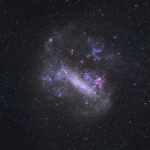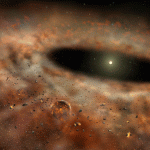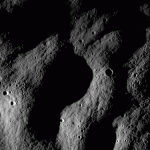
Tiny worms were sent into space for research on ageing. Image: Heiti Paves/Shutterstock
Spaceflight may extend the lifespan of worms, found researchers after conducting experiments on ageing.
In a study conducted by an international team of researchers, a group of microscopic astronauts — Caenorhabditis elegans worms — were found to age slower than their Earth-dwelling comrades. Previous observational studies have shown that astronauts’ muscles do shrink in space, however the mechanisms as to why organisms age slower in space remains unclear.
In the current study, the research team found that up to seven important genes known to control lifespan were down-regulated in the space travelling nematodes compared to those that remained on Earth. To test this concept further the researchers then lowered the expression of the same genes in transgenic worms back on Earth, and found that they too had an increased lifespan.
The accumulation of toxic ageing-related proteins such as polyglutamine, which is found in aggregates in the brain of people with neurodegenerative diseases, was also suppressed by spaceflight.
“These results suggest that ageing in C. elegans is slowed through neuronal and endocrine response to space environmental cues,” said the researchers in their paper published in Scientific Reports.
However, the scientists are not entirely sure how longevity is controlled. “It would appear that these genes [those they down-regulated] are involved in how the worm senses the environment and signals changes in metabolism in order to adapt to the environment,” explained co-author Nathaniel Szewczyk, researcher from the University of Nottingham, in a statement.
As interesting as these forever-youthful space worms are from a basic scientific perspective, the researchers described that the exciting application of their findings is in improving astronauts’ health during extended space flights.
Observations of astronauts returning from space have shown that microgravity induces many physiological and pathological changes, such as the loss of bone and muscle mass. With longer duration human space missions predicted in the future — such as the exploration of other planets and the colonisation of the moon — it is important to gain information on how space affects health and the ageing process.
Source: Scientific Reports






